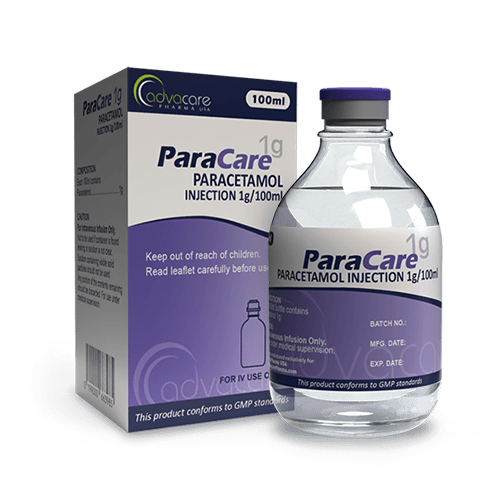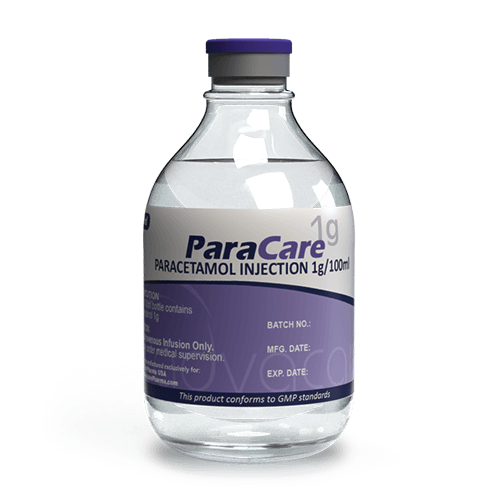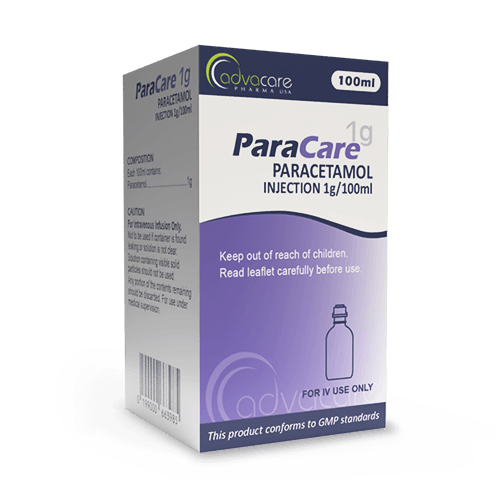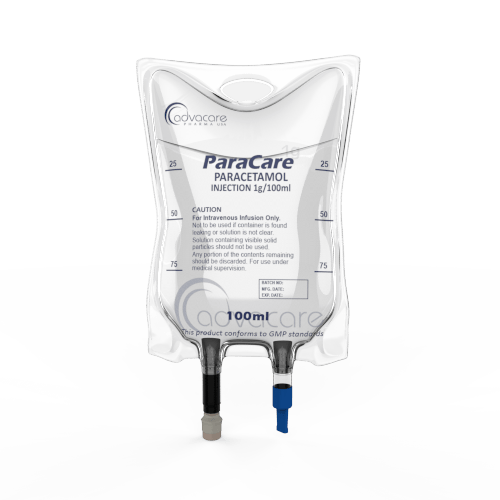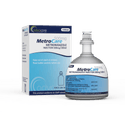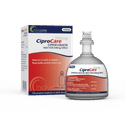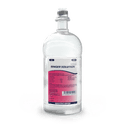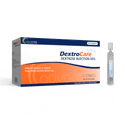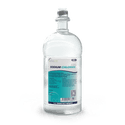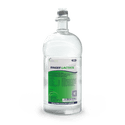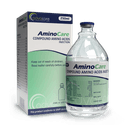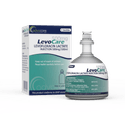- Home›
- Pharmaceuticals›
- Injections›
- Large Volume Injections›
- Paracetamol Injection (Infusion)
Paracetamol Injection (Infusion)
Dosage
Packaging
What is Paracetamol?
Active Ingredients: Paracetamol
Paracetamol Injection (Infusion) is an analgesic drug used for the short-term relief of pain, particularly after surgery or other urgent situations. This medication is also used for the short-term reduction of fever if there is an urgent need (e.g., hyperthermia) or if other treatment options are not possible.
Paracetamol belongs to the groups of medicines called analgesics (pain relievers) and antipyretics. It shows a strong ability of pain management but exhibits weak anti-inflammatory activity. Though it is unclear the exact site of action, the active ingredient may work by either inhibiting prostaglandin synthesis or by activating descending serotonergic pathways.
Paracetamol is also known by the name of "acetaminophen." This drug is a proven analgesic and antipyretic medicament. It leads to analgesia by elevation of the pain threshold and antipyresis by actions on the hypothalamic heat regulating centers. It acts on inhibiting the prostaglandin synthesis in the CNS and has a lesser extent on the peripheral action by blocking pain impulse generation. The peripheral action is due to inhibition of the prostaglandin synthesis or inhibition of the synthesis or actions of other substances. This drug leads to antipyresis by acting on the hypothalamic heat-regulating center. This is in order to produce peripheral vasodilatation. This results in increased blood flow through the skin, sweating, and heat loss.
This drug is distributed throughout the whole body in most body tissues. Around 25% of the drug is bound to plasma proteins. The plasma half-life is 1.25 to 3 hours and may be increased by liver damage and overdose. This drug is metabolized in the liver, and around 85% of it is excreted in urine within 24 hours.
This injection has been manufactured as a sterile, single-dose container for intravenous administration. The 100ml vial is appropriate for adults and children over 33kg.
AdvaCare Pharma is a global distributor and manufacturer of Paracetamol Injections. This medicine is produced in our GMP-certified facilities in China, India, and the USA. We routinely inspect our production facilities to ensure our products meet health, safety, and environmental standards.
Why are we a quality Paracetamol manufacturer?
AdvaCare Pharma is a leading manufacturer of Paracetamol Injection. For 20 years, we have been in the business of manufacturing GMP-approved high-quality, affordable pharmaceutical injection products to improve healthcare worldwide. Our control of the supply chain is data-driven and methodical, supported by highly skilled teams of professionals.
As a large-scale Paracetamol manufacturer, we supply pharmaceutical distributors, hospitals, pharmacies and other medical organizations in more than 65 countries.
Uses
How should Paracetamol Injection be used?
This medication is manufactured as a solution, which should only be administered by a doctor or healthcare provider.
What dose should be given?
- The usual dose for adults and teenagers weighing more than 50kg is 1g. The maximum Injection dose is 4g per day.
- The usual dose for adults and teenagers weighing between 33-50kg is 15mg/kg. The maximum Injection dose is 60mg/kg per day.
- The usual dose for children weighing between 10-50kg is 15mg/kg. The maximum Injection dose is 60mg/kg per day.
- The usual dose for infants and children less than 10kg is 7.5mg/kg. The maximum Injection dose is 30mg/kg per day.
Refer to a doctor or pharmacist for guidelines on dosage. Do not exceed what they advise.
Can Paracetamol be used during pregnancy?
Yes, Paracetamol Injections can be used during pregnancy because there is no adequate data that proves the negative effects of it. With proper dosage and guidance from doctors, it can be used. It is also unknown if this drug can affect the reproduction capacity. Studies on pregnancies exposed to overdoses do not show any increase in the risk of malformation. Doctors should perform a careful benefit-risk evaluation and decide about the safety of this drug.
The recommended posology and duration of the treatment must be carefully adjusted. Any drugs during pregnancy should be added only when clearly needed.
Can Paracetamol be used safely during lactation?
Paracetamol is excreted into breast milk in small quantities. There are no undesirable side effects on nursing infants due to this drug. Paracetamol Injection can be used in lactation only when clearly needed.
Is Paracetamol a safe drug for the pediatric population?
This drug can be prescribed to children, but the drug has a narrow therapeutic index, and children under the age of 5 are at increased risk of overdose.
Paracetamol in children can lead to toxicity, liver failure, and death. In a time period of 10 years, there were 14 cases of acute pediatric liver failure due to Paracetamol usage. If Paracetamol must be used, the doses should be well adjusted, and prolonged dosing should be avoided.
Paracetamol in children should be carefully dosed especially in underweight children. These children are more susceptible to paracetamol toxicity.
Is only Paracetamol Injection enough to treat a certain health issue?
The treatment process depends on the severity of the case. In some cases, only Paracetamol Injection is enough to treat a certain health problem.
If the patient has some bacterial infection, this drug should be combined with antibiotics. The antibiotics should be chosen based on the susceptibility of the bacteria. To do this, antibiograms are needed.
If the patient has a viral disease, this drug should be combined with antivirals, supplements, and vitamins.
The doctor should evaluate the patient’s condition before adding any drug. The final treatment depends on the cause of the disease.
How should Paracetamol Injection be stored?
This drug should be stored within the original package and needs to be protected from light.
Other warnings
This drug should be used with caution if some coumarin anticoagulants are being used. Paracetamol can enhance the activity of these anticoagulants.
Patients should inform their doctors about any medications (prescribed or unprescribed) that they are taking.
Anticoagulants like warfarin should be used with caution in cases of Paracetamol administration.
This drug should be used with caution with drugs intended for treating tuberculosis, like isoniazid.
Paracetamol should be used with caution if the patient is being treated with metoclopramide or domperidone, cholestyramine, lamotrigine, aspirin, salicylamide, amitriptyline, probenecid, chloramphenicol, zidovudine.
Antibiotics should also be used with caution when Paracetamol is being administered. Flucloxacillin is an antibiotic that might lead to a serious risk of blood and fluid abnormalities. These patients are at increased risk of high anion gap metabolic acidosis that requires immediate treatment. This occurs especially in patients with severe renal impairment, sepsis, malnutrition, and chronic alcoholism.
This drug can affect the results of laboratory tests for uric acid and blood sugar levels.
Patients should inform their doctors if they are suffering from mild arthritis and need to take pain relief every day.
Patients with liver or kidney problems should have well-adjusted dosages of this drug. Underweight or malnourished patients should also have carefully adjusted dosages.
Patients who take Paracetamol Injections should not drink alcohol. Large amounts of alcohol might lead to side effects or no benefits from the drug.
Patients with severe infections might have an increased risk of metabolic acidosis. This includes side effects, such as deep and rapid breathing, nausea, vomiting, and appetite loss. If the patient develops these symptoms, the treatment process should be reevaluated, and other treatment solutions should be taken into consideration.
Patients should inform their doctors if they have enzyme deficiency or are sensitive to aspirin.
This drug should be used with caution when patients take oral contraceptives. It does not work on lowering the pain or fever when combined with contraceptives. Doctors should look for alternatives to Paracetamol when the patients are taking contraceptives.
If the patients and physicians do not see any improvements during the treatment process, they should evaluate the therapy and decide about the further steps.
Side Effects
As with all pharmaceuticals, some unwanted effects can occur from the use of Paracetamol Injection (Infusion).
Common side effects include, but may not be limited to: • redness or swelling at the injection site
Serious side effects may include:
- diarrhea
- vomiting
- abdominal or stomach cramps
- loss of appetite
The most common allergic reactions include the following:
- skin rashes
- itching
- hives
- throat swelling
- shortness of breath or wheezing
Prolonged treatment with Paracetamol might lead to liver or kidney damage in patients.
For a comprehensive understanding of all potential side effects, consult a medical professional.
If any symptoms persist or worsen, or you notice any other symptoms, please call your doctor immediately.
Precautions
Do NOT use Paracetamol Injection (Infusion) if:
- You are allergic (hypersensitive) to paracetamol or any of the other ingredients.
- You have severe liver disease.
Before treatment, consult your doctor regarding any medications you are taking to address potential drug interactions.
This medication may not be suitable for people with certain conditions, so it is important to consult with a doctor if you have any health conditions.
This drug should be kept out of reach of children and should not be used after the expiry date.
References
Randomized, controlled, multicentre clinical trial of the antipyretic effect of intravenous paracetamol in patients admitted to hospital with infection
This research investigates intravenous paracetamol (acetaminophen, APAP) for the management of fever due to infection.
It included 80 patients with a body temperature onset ≥ 38.5°C in the previous 24 h due to infection randomized to a single administration of placebo (39 patients) or 1g paracetamol (41 patients), and their temperature was recorded at standard intervals.
Within the first 6 hours, defervescence was achieved in 15 (38.5%) patients treated with a placebo compared to 33 (80.5%) patients treated with 1g of paracetamol (P < 0.0001). The median time to defervescence with 1g of paracetamol was 3 hours. Rescue medication was administered to 15 (38.5%) patients in the placebo group and five (12.2%) patients in the paracetamol group (P = 0.007); of these, nine (60.0%) in the placebo group and two (40.0%) in the paracetamol group experienced defervescence.
This study shows that 1g paracetamol formulation has a rapid and sustainable antipyretic effect on fever due to infection but its efficacy also depends on the hepatic metabolism.

You might be interested in...
Why AdvaCare Pharma?
As an industry leader, we are aware of our responsibility to provide affordable and sustainable solutions to improve healthcare worldwide.
